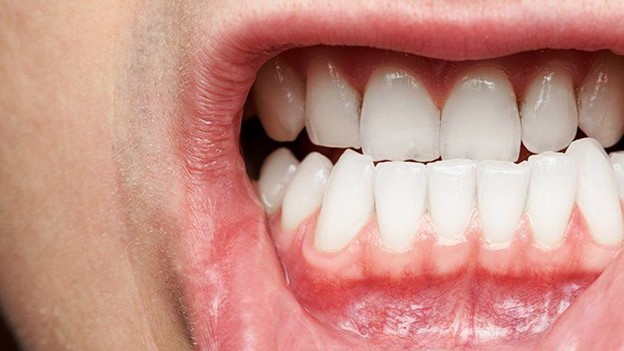Periodontal Disease Is Destructive To Your Health

One of the most common diseases in the world is the infection and destruction of the gums and bone in the mouth known as gum disease, pyorrhea or periodontal disease. This disease affects millions of adults and begins early as gingivitis.
Signs of periodontal disease include redness, bleeding, bad breath and swelling of the gums but, like many other diseases (cancer and heart disease), periodontal disease is not painful until its advanced stages. Our mouth contains many different kinds of germs, and some germs can cause infection and disease around our teeth and gums if not removed regularly. Tooth decay and periodontitis are caused by these germs and both of these diseases will progress beyond our body’s ability to stop them unless treated. This is a very important point. Only regular dental treatment and therapy will halt the destruction of the teeth, gums and bone in our mouth. This is also why prevention is so important. Maintaining a state of oral health is far easier, less expensive and less painful than waiting until diseases like cavities or periodontal disease have developed and progressed to the point of requiring more extensive treatment.
Periodontal disease is also destructive to our body. Imagine a chronic infection of your skin that penetrates to the bone! That is what periodontitis can lead to in the mouth. If the teeth or gums are injured or infected, an opening to germs is available for them to enter our jaw bone and bloodstream and cause problems in other areas of the body. In one recent study, people with serious periodontal disease were 40% more likely to have another chronic health condition as well. The germs, or the inflammation caused by our body’s reaction to those germs, can put an extra burden on the immune system that normally keeps us healthy. If you already have heart disease, diabetes or are pregnant, periodontitis will make it more difficult for the body to remain stable. Periodontal disease complicates diabetes, and up to 91% of patients with heart disease have periodontitis.
Also, as we age our gums naturally recede. This opens areas between our teeth that collect food particles and the germs that eat them. These germs then infect our gums and cause destructive cavities on the roots of our teeth. That is why it is critical to effectively clean between our teeth with floss, or even better, a water flosser.
For all of these reasons, it is important to have the teeth and gums cleaned at least every 6 months and patients with the above risk factors are encouraged to have cleanings every 4 months to catch problems as early as possible. Many times, simple therapy is all that is needed to reverse or prevent further damage and the need for gum surgery. Our office will help you maintain your teeth and gums at their healthiest with regular visits, cleanings and preventive care.
